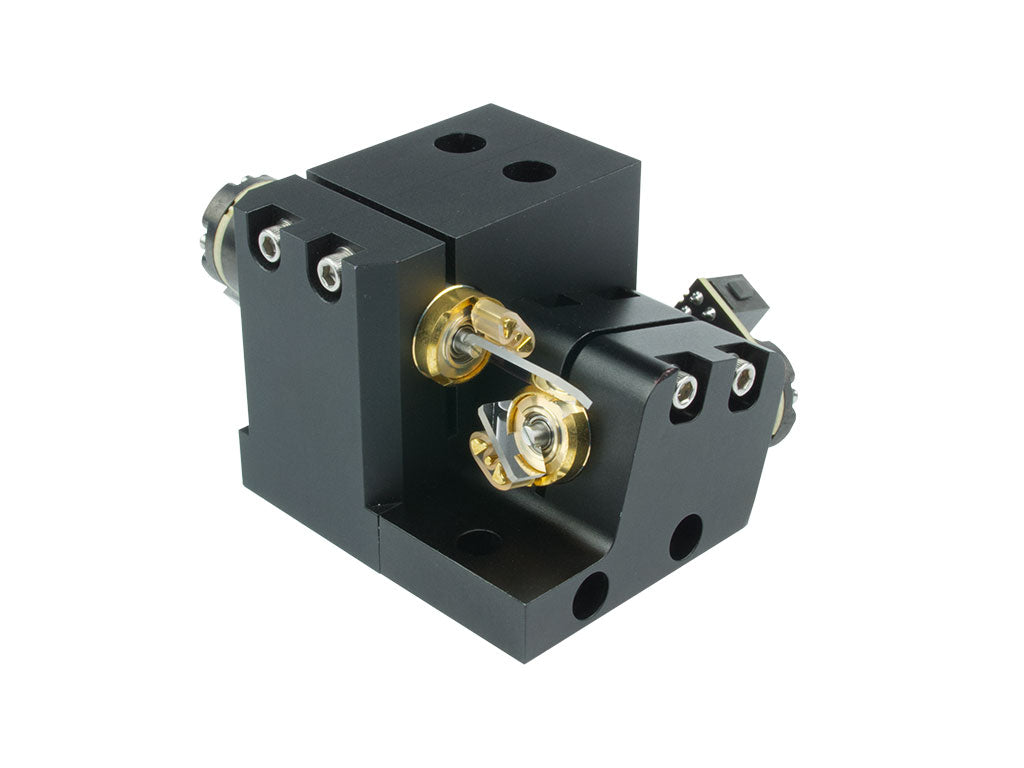Just How a Galvanometer Scanner Boosts Efficiency in Laser Scanning Technologies
The combination of galvanometer scanners in laser scanning innovations represents a pivotal improvement in accuracy engineering. By facilitating exact and quick changes of laser beam of light direction, these devices substantially enhance functional performance throughout numerous applications, from clinical imaging to commercial engraving. The underlying electromagnetic systems, coupled with advanced responses systems, make certain real-time control and boosted precision. However, as sectors progressively require greater efficiency requirements, the inquiry develops: what future advancements might better elevate the capacities of galvanometer scanners in this progressing landscape?
Comprehending Galvanometer Scanners
A galvanometer scanner is an advanced device that leverages electro-magnetic concepts to achieve exact angular motion of mirrors or other reflective surface areas. These scanners operate through the communication of an electric present and a magnetic field, making it possible for accurate and quick positioning. This innovation is necessary in applications calling for high-speed scanning, such as laser inscription, optical communication, and clinical imaging.

Galvanometer scanners are usually defined by their rapid action times and high angular resolution, making them suitable for applications that demand quick movements and exact placing. Their integrity and efficiency make them a crucial element in modern-day laser scanning technologies, adding substantially to innovations in different fields, consisting of manufacturing, medical care, and telecommunications.
Device of Laser Beam Of Light Control

The control device counts on closed-loop responses systems that continually monitor the beam's setting. The signals from optical sensing units give real-time data to the control system, permitting rapid changes to maintain accuracy. This is important in applications where also small variances can jeopardize the high quality of the check or engraving.
Additionally, the galvanometer's response time is critical; high-speed motors make it possible for speedy activities, ensuring that the laser light beam can swiftly map intricate patterns or perform elaborate operations. The combination of digital signal processing additionally improves the responsiveness and accuracy of the galvanometer scanner. Generally, the device of laser light beam control via galvanometer scanners exemplifies the combination of advanced engineering and technology, yielding high-performance results in laser scanning applications.
Benefits of Enhanced Accuracy
Enhanced accuracy in laser scanning technologies provides substantial pop over here benefits across different applications, from industrial production to medical procedures. The combination of galvanometer scanners enables extremely accurate light beam positioning, which is crucial for tasks needing meticulous detail. This improved accuracy makes sure that the laser can target specific locations with minimal variance, resulting in remarkable top quality end results.
In commercial contexts, precise laser scanning leads to boosted item uniformity and lowered product waste. In medical applications, the accuracy of laser procedures can considerably affect person end results.
Furthermore, enhanced precision promotes advanced applications such as 3D imaging and microfabrication, where also minute errors can cause significant mistakes. By giving repeatable and reputable laser positioning, galvanometer scanners add to the general effectiveness and efficiency of laser systems. In recap, the benefits of improved precision not only boost operational efficiency yet also elevate the standards of quality and safety in various industries.
Applications in Different Industries
The convenience of galvanometer scanners in laser scanning technologies extends throughout several sectors, each profiting from the accuracy they offer. In the clinical field, these scanners are crucial in applications such as laser surgical procedure and imaging, enabling highly exact targeting of cells while lessening damage to bordering locations - galvanometer scanner. Their fast reaction and great resolution are important in generating premium results
In the production field, galvanometer scanners boost processes like laser inscription and cutting. Their capability to rapidly guide laser beams onto surface areas enables reliable assembly line, improving rate and accuracy in producing complex styles or components.
The vehicle industry likewise utilizes on galvanometer technology for high quality control and inspections (galvanometer scanner). By using high-speed scanning, suppliers can discover defects in settings up or materials, making sure that products meet strict criteria
Furthermore, in the enjoyment market, galvanometer scanners are utilized in laser light programs and displays, providing vibrant aesthetic experiences with specific control over laser movements.
Future Patterns in Laser Scanning
Emerging modern technologies are poised to reinvent the landscape of laser scanning, with galvanometer scanners at the center of this improvement. As markets significantly require precision and performance, the advancement of galvanometer technology will drive considerable improvements in laser scanning applications.
Future fads indicate an expanding assimilation of fabricated intelligence and device discovering algorithms, which will certainly enhance data processing abilities and automate decision-making in real-time. This synergy will enable extra advanced analysis of scanned data, resulting in enhanced precision in applications such as 3D modeling and independent navigating.
Moreover, the miniaturization of components and the advancement of sophisticated materials will add to lighter, a lot more mobile laser navigate here scanning systems. This mobility will expand the reach of laser scanning modern technologies into formerly hard to reach atmospheres, such as remote terrain and intricate building rooms.
The surge of increased fact (AR) and digital truth (VR) applications will additionally form the future of laser scanning. By integrating galvanometer scanners with AR and VR, individuals will certainly gain from immersive experiences that improve visualization and web link project preparation.
Conclusion
Finally, galvanometer scanners play a crucial function in maximizing laser scanning technologies via their exact control of beam instructions and quick angular modifications. The integration of innovative feedback systems and optical sensors considerably boosts functional speed and accuracy, leading to boosted outcomes in applications such as laser inscription and clinical imaging. As markets increasingly take on these innovations, the recurring developments in galvanometer scanner layouts are expected to more raise performance criteria and expand application opportunities.
The integration of galvanometer scanners in laser scanning innovations represents an essential improvement in accuracy design. In general, the system of laser beam control with galvanometer scanners exemplifies the fusion of sophisticated design and innovation, producing high-performance outcomes in laser scanning applications.
By supplying dependable and repeatable laser positioning, galvanometer scanners add to the total performance and performance of laser systems.The adaptability of galvanometer scanners in laser scanning modern technologies extends throughout multiple sectors, each profiting from the precision they supply.In final thought, galvanometer scanners play a pivotal duty in optimizing laser scanning modern technologies with their accurate control of beam of light instructions and quick angular adjustments.